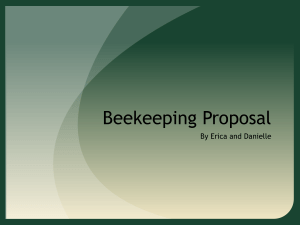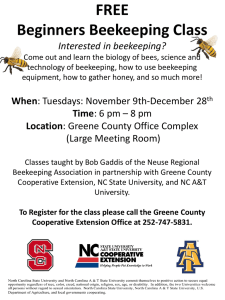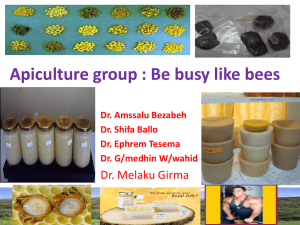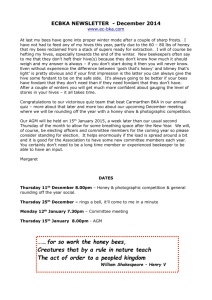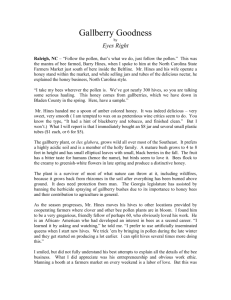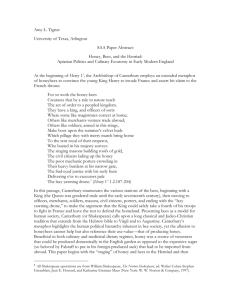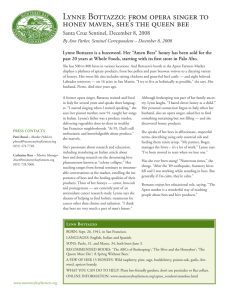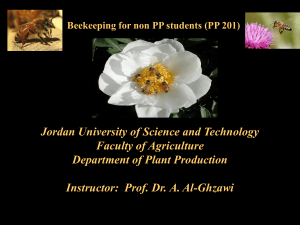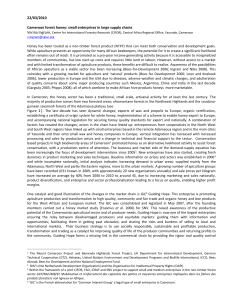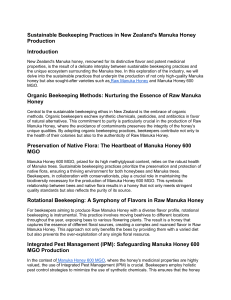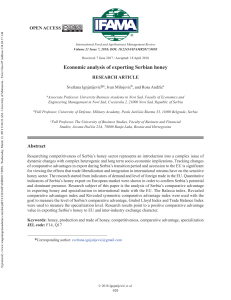Corporate Citizenship and Chocolate: A Bitter or Sweet Aftertaste?
advertisement
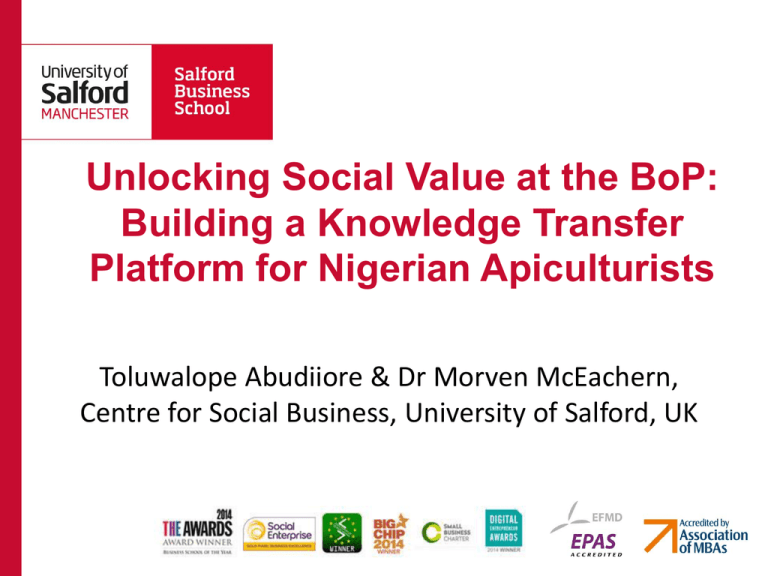
Unlocking Social Value at the BoP: Building a Knowledge Transfer Platform for Nigerian Apiculturists Toluwalope Abudiiore & Dr Morven McEachern, Centre for Social Business, University of Salford, UK Introduction • Increasing significance of the bottom of the pyramid (BOP) markets • Majority of studies provide expertise and knowledge for companies that operate outside the BOP • 60% of the Nigerian population live on less than $1-2 per capita Apiculture • • • • Apiculture is also known as beekeeping and/or the art of rearing bees Beekeeping requires less capital to engage in and produces valuable products for the international market Potential for generating employment for a large number of people Coincides with a decline in global honey production Research Objectives • • • To explore the nuances around Nigerian apicultural production practices To identify if potential knowledge transfer opportunities exist for BOP social entrepreneurs To understand if and how networks can successfully impact stakeholders and unlock social value opportunities Theoretical Framework (1) • Social business is an innovative approach geared towards the provision of goods, as well as capital and technology to help create social value – • Yunus, 2011 Social value creation culminates in the realisation of 3 values of development i.e. sustenance, self-esteem and liberation from servitude – Todero & Smith, 2011 Theoretical Framework (2) • Agricultural information is typically characterized by out of date and inappropriate information – Shalendra et al., 2011 • Nigeria has the highest number of mobile phone subscriptions in Africa – Agwu & Carter, 2014 • Significant value exists in determining the networking role of mobile technology in bridging the knowledge transfer gap Methodology • Interpretivist approach • Exploratory semi-structured, in-depth interviews (n=15)/postal surveys (n=16) • Sampling • ‘Snowball’ sampling of beekeepers in Ogun State, Nigeria • Analysis • Thematic analysis Sample Profile • • • Participant farmers were primarily male, had varying levels of education and originated from contrasting types of locality Most participants had kept bees for about a decade Most participants had their apiary sites on farmlands/cultivated gardens, with others having their colonies sited in forests or their backyard Production Techniques (1) • Most participants relied on traditional production techniques • Beeswax and propolis were additional by-products but most just harvested honey Production Techniques (2) • Preferred methods of honey extraction was either by smoking the hives and squeezing the honey with bare hands or extracting the honey from the hives by grinding the combs and sieving Making a Living • Nearly all participants derived a basic income from beekeeping • Most participants were considering ways of scaling-up their enterprise Information Channels • Networking and enterprise support was generally informal • Most participants obtained information from books and magazines • Most participants were receptive about the use of mobile apps as a source of information • Of those who already used their mobile phone for browsing, many complained that it was neither relevant to their terrain and/or their situation Conclusions • • • • Need to modernise practices in all stages of the production processes Improve access to geographicallyspecific information Opportunity to utilise mobile technology to achieve both To unlock social value via the operationalization of small-scale apiculture, greater integration and social cooperation with upstream partners is called for Any questions?
